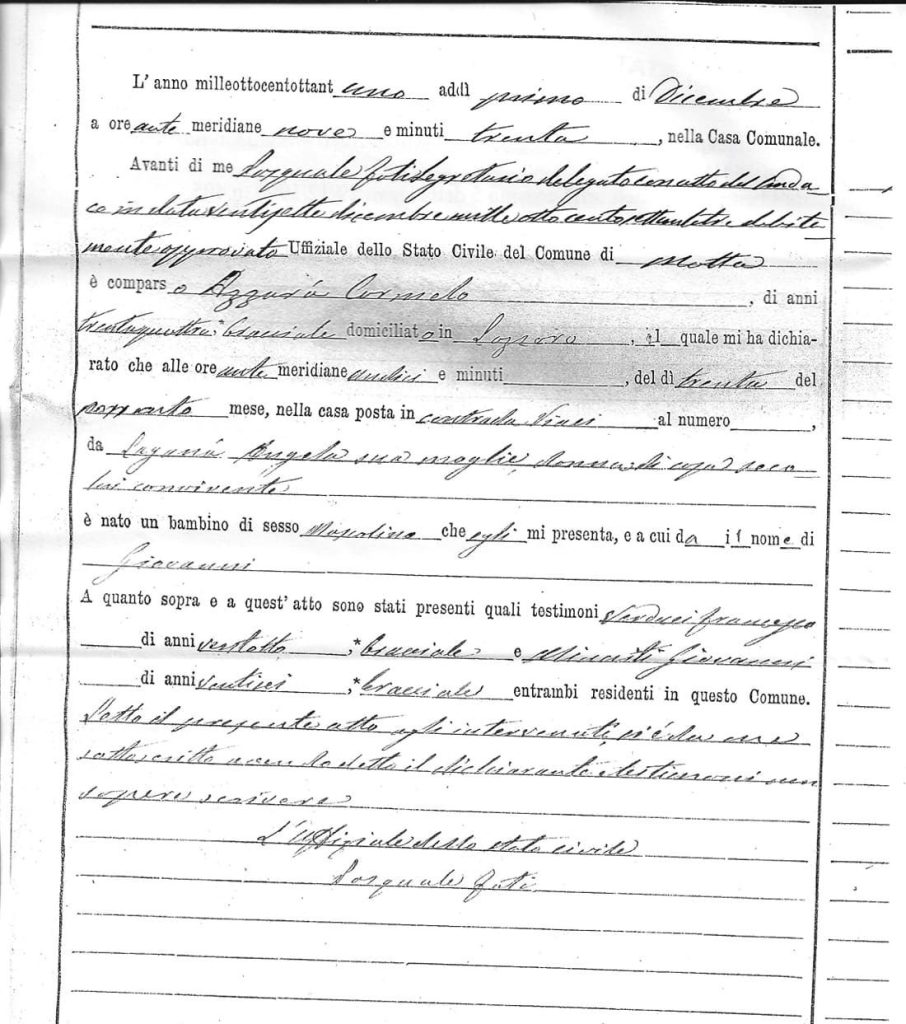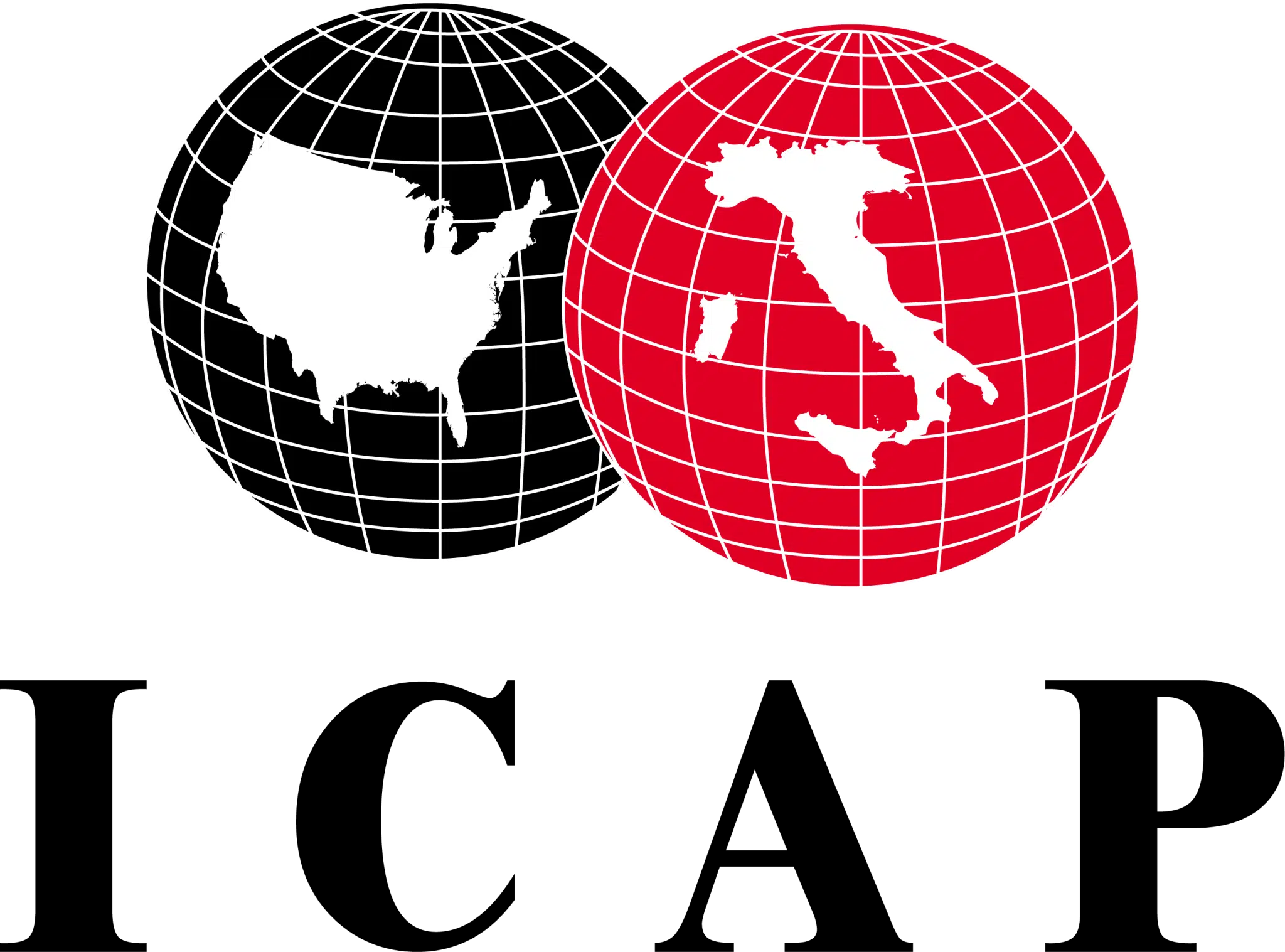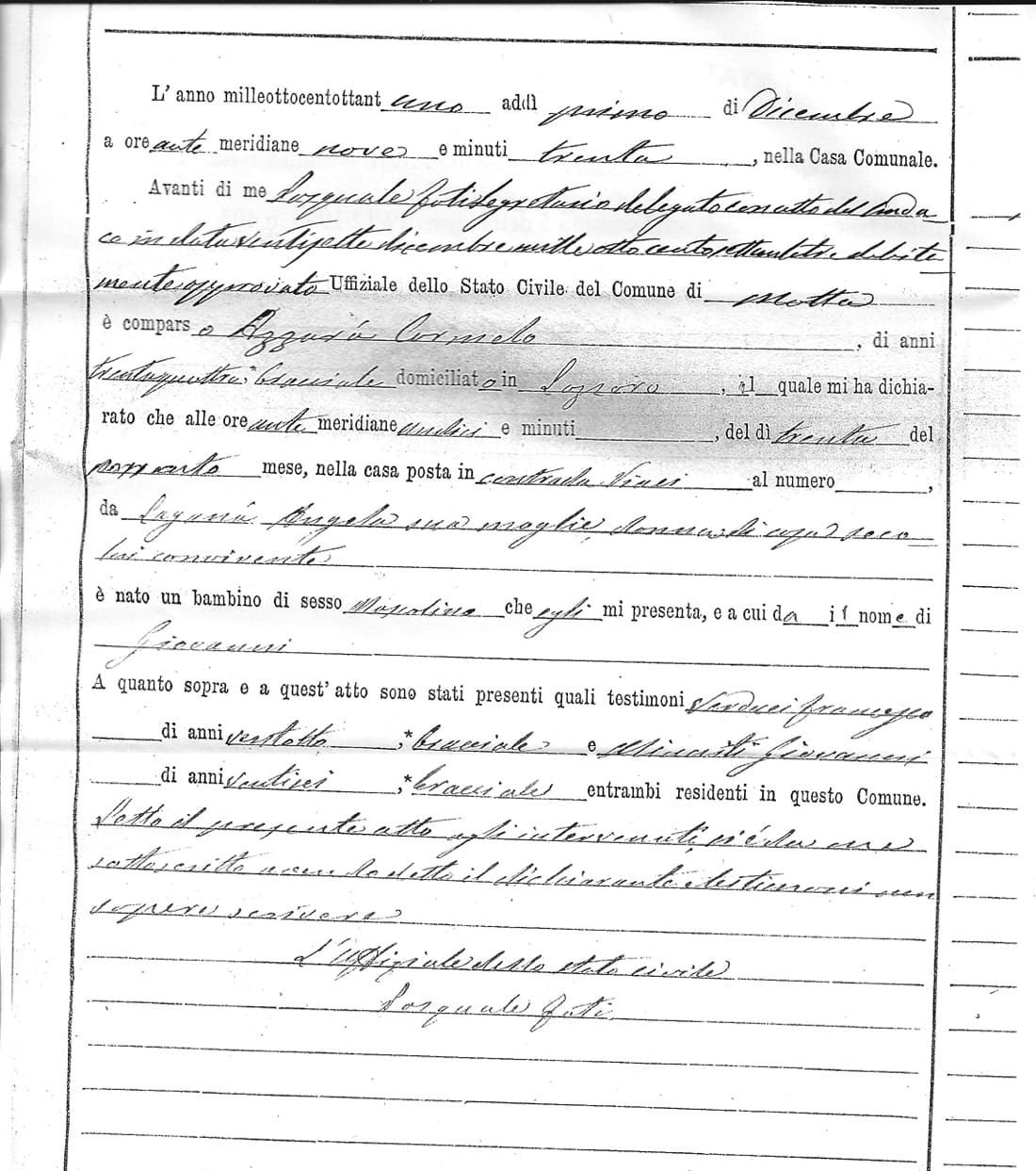
Obtaining the birth record of an Italian ancestor is a “threshold document” for obtaining Italian citizenship by descent, which means this is a vitally important document to move toward becoming an Italian citizen. Often, people do not know the town of birth of their Italian ancestors, although they might know the region. Other times, the Italian ancestor listed the “province” of birth in the US documents but was not born in the provincial city. The above can cause delays in getting your documents in order, and in this blog, you will discover some handy tips and tricks that I use for locating the town of birth of your Italian Ancestor. Remember that this type of research is sometimes like finding a needle in a haystack. You know the needle is somewhere, and sometimes you find it quickly and easily, but other times it can be hard to find. However, with persistence, the right tools, and at times a bit of luck these Italian documents can be found!
The first thing you want to do is to ask around the family… and ask everyone, I mean everyone! Even if your older family members seem not to remember, they may give you that one clue you need. Many times, Italian baptismal records, Italian passports, US naturalization documents listing town of birth, and even old Italian birth certificates have been passed down. What happens is that nobody wants to throw away these documents (and thank goodness), and they get passed down from parent to daughter, to grandson, etc. My mom told me a couple of months ago that she found an envelope in her safe, and since she knew that I do genealogical research, she asked if I would review the contents. I couldn’t believe what she handed me. I had looked for weeks, if not months, for my great grandparents’ marriage record, which I eventually did find (with a great bit of luck… different story I will blog about someday). But there it was, this deteriorating 120-year-old Italian marriage record, something that had eluded me for months and that I had only seen images of was in my hands. It was a truly emotional find. So, my first piece of advice is to ask around. I would even go as far as asking your relatives to look in their safes.
Clues are vitality important and sometimes right in plain view. Look for keepsakes around the house; maybe your grandfather loved a particular soccer team. Maybe a photograph or a painting of a town is hanging on the wall. Ask, “What town is that”? This could be a clue. Italy is a big country; if we can narrow the search down to a few towns, that helps a lot. Also, check with the neighbors of your Italian ancestors. When your ancestors came to America, they normally moved to an area with other people who had immigrated from the same town in Italy. There may be a chance that something was said to someone and they didn’t realize it was an important clue. You never know. When my grandparents came from Italy to America, all their neighbors were from the same provincial areas of Campania, Italy. I would even go as far as to interview their past neighbors if they are still around. Who knows what was said over a glass of vino and a piece of soppressata!
Ship manifests are, at times, great for finding a town of birth. My grandfather’s was very accurate. He was born in a town called Briano. The ship manifest listed that as his place of origin from Italy. Finding Briano was a challenge, and I’ll comment on that soon. Ship manifests can be found on free search sites like “FamilySearch”. A lot of the time the place of origin of your ancestor on the ship list will say Italy. In these cases, I would check other passengers on the manifest. Look for passengers with actual towns listed. If you see a pattern, this could be a clue. Also, look for other passengers with the same or similar last name. There are times when cousins would be on the same ship. In my research, I found that towns often have many families with the same last name. So, note this when you see patterns of the same name appearing.
As I mentioned above, my grandfather was from Briano, Italy. But when I searched for this on Google Maps, nothing came up for Briano (Villa di Briano comes up). Therefore, I reached out on Facebook and found and joined a group in Campania, Italy, which, from what I had researched, was the likely region in which he was born. You would be surprised how helpful other people want to be. I messaged the group, and several members replied and gave me the important information I needed (I suggest using Google Translate to ask your question; even though it’s not 100% accurate, it can get your point across).
They told me that the town I thought was correct was called by a different name today and directed me to a different location and town. They told me Briano differed from Villa di Briano, which was a tremendous help. With that information, I could at least track down the province, Caserta, which had the documents I needed (my grandfather’s birth record from 1908). In addition, I found two of my grandfather’s brothers’ birth records and his parents’ marriage records online. All of that was one hint from my Facebook friend. So social media can be a helpful tool.
There are times when the US vital death record will have the town of birth in the record. If you have this document, that can help. This is not all the time and is not even a common practice, but I have seen it. Also, baptismal records may list the town of birth. Read the obituaries of your ancestors if you have them. Some are online, but older obituaries are harder to find. The obituary may list the town of birth. Further, if you have the children of your Italian ancestors’ marriage application, this can sometimes be helpful. It all depends on how detailed they are on the application. Remember, you need to think like a detective.
Another important quality is to know your Italian geography. A lot, but not all, of Italians who immigrated to America during the peak of immigration came from southern Italy. Look for clues on the ship manifest or even the census records. Anything that could put a town of birth in view. What saved me with my grandfather is that I knew a little bit about Naples and the surrounding area (both Naples and Caserta are in the Region of Campania), and I didn’t know that Google Maps filled in the gaps. I use Google Maps a lot when conducting research for clients.
In the last part of this blog, I want to talk briefly about using online search sites. This could be a book in and of itself. There is so much information, which is good, but it truly can be overwhelming.
The two most popular are “Ancestry” and “FamilySearch”. These search sites work because an original document is photocopied (for instance, a birth record for the town of Ascoli Piceno from 1890). Then that photocopy is uploaded to their website. After that occurs, staff members and, in some cases, volunteers will review every record and digitize the information. By searching for a particular name in Ancestry and FamilySearch, if that name has been digitized, it will populate, and you may see the original document. For instance, if you were searching for Antonio Regoli, you may get one or several search results. Now you must verify that this is your relative, not some other Antonio Regoli.
You may not realize that not all records are digitized, meaning that the record is on the website, but you must review the document, page by page, to find your information. In FamilySearch, there is a tool called “Research WIKI.” If you search this section, you can search by area. For example, if you needed to find someone who may have lived in Rome, Italy, you would search Rome, Italy. Then you would search for birth, death, or marriage records. I realize this is a bit confusing, but much of the information can be there. Again, it’s like being a detective looking for clues. Make sure to keep track of what you find.
In this blog, I have tried to give you some simple tools and tips to find the place of birth of your Italian Ancestors. Keep in mind that this is just a short blog. Books have been written on this subject, and how in-depth you want to go is really up to you. I have taken certification courses and spent hundreds of hours looking at these documents.
For me, this is a passion. I love research and spend hours helping others (sometimes for free, just because I love it so much). In your case, you may want to get the info and move on, which may not be possible depending on your particular circumstances. Or you may want to hire someone to do the work for you because you just do not have the time. My advice is to choose the path you want to go. You could get lucky and find the info quickly and easily. However, if you want to complete your Italian dual citizenship journey, you will need these documents.
If you do run into a roadblock, if you just do not want to invest the time, and if your mom didn’t surprise you with the envelope from the safe, then reach out to us. We have a team of professional genealogists who are highly trained in locating Italian Civil Records and on-the-ground team members in Italy who can obtain certified copies of the records for your Italian Citizenship by descent application.
For a free eligibility screening to discuss your Italian citizenship by descent, or if you would like more information about the full menu of services that we offer to our clients at ICAP, call us today at (312) 796-9970 or visit our website https://www.icapbridging2worlds.com

